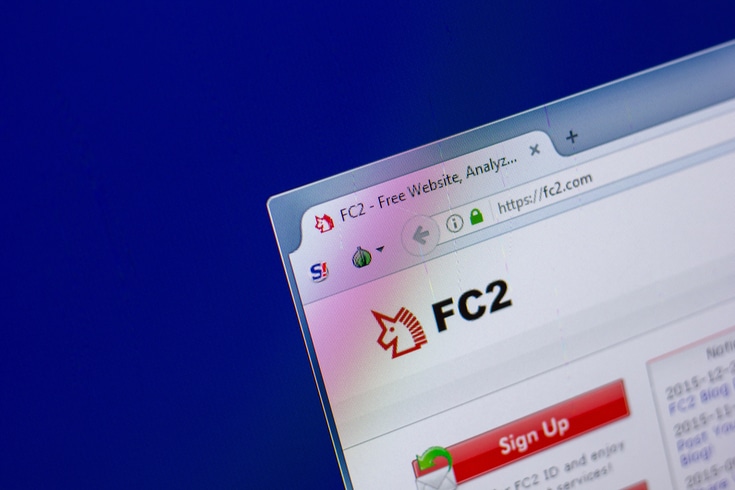Has the Removal of Arrest Reports and Criminal Records Become Easier with the Supreme Court Decision in Reiwa 4 (2022)?

Arrest reports and criminal records on the internet, often referred to as “digital tattoos,” have been the subject of numerous lawsuits and provisional dispositions regarding their removal. Traditionally, there have been hurdles, such as the so-called “clear requirements,” for the removal of such information.
However, on June 24, 2024 (Reiwa 4), the Supreme Court made a potentially different judgment regarding the removal of an arrest report that had been continuously posted on Twitter. This may have opened the possibility for the removal of arrest reports and criminal records that were previously considered non-removable.
In this article, based on the Supreme Court’s decision on June 24, 2024 (Reiwa 4), we will explain the conditions for the removal of arrest reports and criminal records on Twitter and other sites.
Deletion of Arrest Information Tweets on Twitter Becomes a Problem

Twitter, due to its nature of allowing casual posts (tweets) of up to 140 personalitys about daily events, tends to be a medium where ‘casual’ posts about arrest articles published on news sites and the like are made.
The Supreme Court decision on June 24, 2022 (Reiwa 4) also targeted such a tweet, which was based on an article from a news site published on the day of the arrest.
The appellant (plaintiff) was arrested (hereinafter referred to as “the fact of this case”), which was reported on the day of the arrest, and the article was posted on the websites of several news organizations. On the same day, the tweets in question were made on Twitter accounts of unidentified individuals. Each of these tweets was a reproduction of a part of the above-mentioned news article, indicating the fact of this case, and except for one, a link was set to the web page of the reproduced news article. In the websites of the news organizations, all the news articles reproduced in the tweets in question have already been deleted.
Supreme Court decision on June 24, 2022 (Reiwa 4) * “(Plaintiff)” is noted by the author
As mentioned in the judgment, news site articles are often automatically deleted over time, but tweets based on those articles continue to remain on Twitter. This could be a significant issue as a ‘digital tattoo’ of arrest articles.
Method of Judgment in the Supreme Court Decision of Reiwa 4 (2022)
What drew attention was the Supreme Court’s decision to:
- Compare the legal interest of not having arrest information disclosed (the reason for deleting the tweet) of the party seeking deletion (the person who has the arrest article posted), and
- The circumstances related to the reason for continuing to make the tweet available for general viewing (the reason for keeping the tweet).
The court simply weighed these factors and decided that if the former outweighs the latter, the tweet should be deleted.
In fact, in Heisei 29 (2017), the Supreme Court made a similar comparison regarding the deletion of arrest article information in Google search results, and decided that deletion is only permitted when it is “clear” that the former outweighs the latter.
And the Reiwa 4 (2022) decision explicitly states that it does not adopt this “clear” requirement, as follows:
The original court (High Court decision) states that the appellant (plaintiff) can demand the deletion of each tweet from the appellee (Twitter Inc.) only when it is clear that the appellant’s (plaintiff’s) legal interest in not having the facts of the case disclosed is superior. However, considering the content of the service provided by the appellee (Twitter Inc.) to Twitter users and the actual use of Twitter, it cannot be interpreted in this way.
Supreme Court decision on June 24, Reiwa 4 (2022) *The author added the parentheses
In other words,
- Heisei 29 (2017) decision: Deletion only when “the reason for deleting the tweet >> the reason for keeping the tweet”
- Reiwa 4 (2022) decision: Deletion when “the reason for deleting the tweet > the reason for keeping the tweet”
Thus, the requirement of “clear” is not necessary in the Reiwa 4 (2022) decision.
For details on the Heisei 29 (2017) decision and the court precedents leading up to it regarding the deletion of arrest articles and criminal history information, please refer to the following article.
Related article: Explaining Precedents, Standards, Methods, and Procedures for Deleting Online Articles Related to Arrest Records and Criminal History
A Decision Not Considering the Necessity of Real-Name Reporting?

Furthermore, the Supreme Court decision in 2022 (Reiwa 4) also discusses how to specifically determine the “reasons for deleting a tweet,” considering factors such as:
- The nature and content of the arrest report
- The extent to which the fact of the arrest is conveyed by the arrest report, and the degree of specific harm suffered by the individual
- The individual’s social status and influence
- The purpose and significance of the arrest report
- The social situation at the time the arrest report was posted and subsequent changes
It states that these elements should be taken into account.
Whether the appellant (plaintiff) can demand the deletion of the tweets in question based on personality rights, claiming that his privacy has been violated by the tweets, should be determined by comparing and weighing various circumstances related to the reasons for continuing to make the tweets available for general viewing, such as the nature and content of the facts in question, the extent to which the facts are conveyed by the tweets and the degree of specific harm suffered by the appellant (plaintiff), the social status and influence of the appellant (plaintiff), the purpose and significance of the tweets, and the social situation at the time the tweets were made and subsequent changes. If, as a result, the appellant’s (plaintiff’s) legal interest in not having the facts in question made public outweighs the reasons for continuing to make the tweets available for general viewing, it is reasonable to interpret that the appellant can demand the deletion of the tweets.
Supreme Court decision, June 24, 2022 (Reiwa 4) *The author has added the parentheses
This is a departure from the Supreme Court decision in 2017 (Heisei 29), which considered the “necessity of mentioning the real name in the article.”
In other words, a simple reading reveals a shift:
- 2017 Decision (Heisei 29): Does not allow deletion in cases where “there is some reason to mention the real name”
- 2022 Decision (Reiwa 4): Does not consider the “reason to mention the real name,” but allows deletion based on other factors
This suggests that the threshold for allowing deletion has been lowered compared to the 2017 decision (Heisei 29).
Has it become easier to remove arrest articles due to the 2022 (Reiwa 4) ruling?
In general privacy infringement cases, such as when an individual’s personal information like their name and address is exposed online, if the reason for deletion outweighs the reason for retention, deletion is generally permitted. There has been ongoing debate over the Heisei 29 (2017) decision, which added the requirement of “obviousness” specifically for arrest articles. The 2022 (Reiwa 4) ruling, which stated that there is no need for “obviousness”, has attracted attention.
There may be pros and cons to the following, but even in cases where there is value in retaining the information that a suspect in a high-profile case has been arrested, the question arises as to what circumstances would warrant:
- Deleting the “real name” information, taking into account other considerations (from the “nature and content of the arrest article” to “social circumstances and subsequent changes”)
- Continuing to publish the real name, in cases where it should be retained
It seems unnecessary to consider the “reasons for including the real name” separately from the above elements.
The 2022 (Reiwa 4) ruling, which acknowledges the possibility of deleting arrest articles and criminal record information that could not be deleted before, is noteworthy.
Remaining Issues
Is the hurdle for removing search results still high?
There are differences in the cases between the decision in Heisei 29 (2017) and the judgment in Reiwa 4 (2022).
- Heisei 29 (2017) Decision: A case seeking the removal of Google’s search results, discussing the role of search engines as the foundation of information distribution on the internet in modern society, and adding a “clear” requirement.
- Reiwa 4 (2022) Judgment: A case seeking the removal of tweets on Twitter.
In other words, considering the Reiwa 4 (2022) judgment, the Supreme Court may currently think:
- For Twitter (and other general sites): No “clear” requirement is necessary.
- For the removal of search engine results: A “clear” requirement is necessary due to its significant role.
We have detailed explanations about the general theory on the removal of search results and the case law leading to the Heisei 29 (2017) decision in the following article.
Related article: How to Apply for the Removal of Google Search Results by URL
Is “protection” necessary for search engines?
Search engine results are, after all, removed after a certain period of time if the original page (or tweet on Twitter) is deleted.
From a practical point of view, cases where “search results should still be removed” are often:
- When it is legally or factually impossible to request the removal of the original page due to the limits of Japanese courts (known as international jurisdiction) or issues such as whether the server in question will comply with the decision of the Japanese court (the reality of execution).
- When it is possible (or potentially possible) to realize the removal of search results through Japanese courts.
Typically, this happens when:
- Originally, information about an arrest article was posted on many pages and naturally appeared in Google’s search results.
- A highly specialized lawyer negotiated with the server operators of each page, and most pages were allowed to be deleted, naturally disappearing from the search engine results.
- However, for some anonymous sites on overseas servers, there were no entities to negotiate with or sue, and it was impossible to request the deletion of the page itself.
- Therefore, reluctantly, for such pages, the search engine was made the defendant, and the “removal of search results” (not the deletion of the page) was requested.
This is a typical case.
It remains questionable whether search engines should be more strongly protected than other sites due to their social role in such cases. In other words, in cases like the above, the judgment is, at least in result, merely protecting things like “search results related to anonymous sites on overseas servers”.
Summary
The 2022 (Reiwa 4) ruling, as mentioned above, leaves some questions unanswered, such as “What happens in the case of search engines?” However, it can still be considered applicable to arrest reports and criminal record information in general posted on Twitter and other various sites. It can be said that there is a possibility that arrest reports and criminal record information, which were previously thought to be undeletable, may now be deletable due to this Supreme Court ruling.
You can read the full text of this ruling here (Japanese Court Site).
Guidance on Measures by Our Firm
Monolith Law Office is a legal office with high expertise in both IT, particularly the internet, and law. In recent years, there is a potential for defamation and slander following the spread of arrest reports and the like on the internet. Such defamation and slander can cause serious damage as a “digital tattoo”. Our firm provides solutions for dealing with these “digital tattoos”. Details are described in the article below.
Category: Internet





















